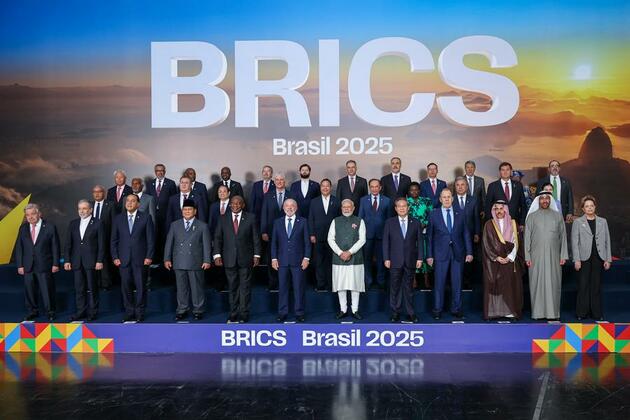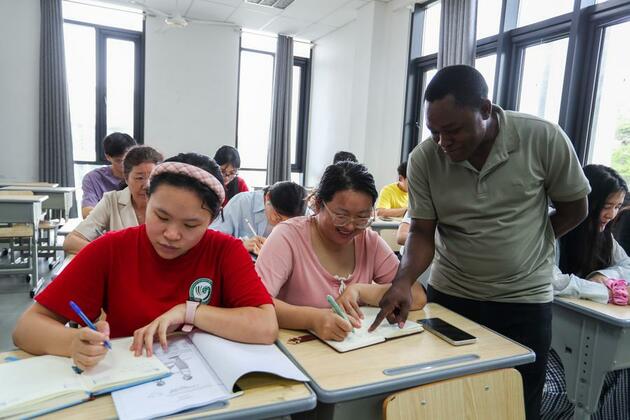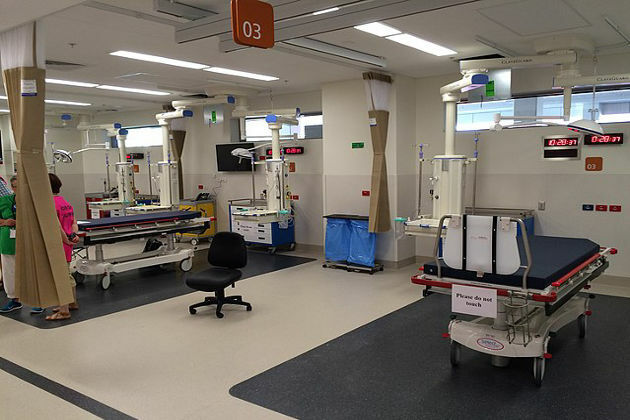Tax season in South Africa: the system is designed to tackle inequality - how it falls short
The Conversation
08 Jul 2025, 12:41 GMT+10

South Africa's personal income tax system is in the spotlight as the country's tax filing season gets under way. Personal income tax is an important way of redistributing income from higher-earning to less-well-off individuals.
But how effectively does it do this and what can get in the way?
At the heart of any redistributive tax system is its structure: which incomes are taxed or exempted, which expenses are tax deductible, how the tax rate schedule is designed, and which tax credits are granted, including how much they reduce the tax owed. The schedule translates taxable income into the taxpayers' tax liability by defining tax rates by tax brackets. The top tax rate is 45%.
In a recent study we explore how features such as tax rates, deductions, credits, and bracket adjustments shape the redistributive capacity of South Africa's personal income tax system. For this research, we analyse all the income tax returns of South African taxpayers provided by South Africa's Revenue Service for the tax years 2015 and 2018. (All records were made anonymous.)
The countrys personal income tax operates under a progressive tax scheme: People pay higher rates of tax as their income rises. Those with lower incomes may owe no income tax at all, while top earners can face marginal rates as high as 45%.
Based on our analysis, this progressive rate schedule is the most effective mechanism for redistributing income from higher- to lower-income earners. By contrast, "tax expenditures" - that is, expenses, which taxpayers can deduct from what they owe in tax - lower the redistributive impact of the personal income tax system.
Put differently: Allowing taxpayers to claim tax deductions and tax credits reduces the extent to which personal income taxation effectively lowers gaps between the after-tax income of high- and low-income earners.
A number of recent tax policy reforms further dampened the redistributive capacity of the system. The spotlight is on potential policy reforms that may counter this.
Our research shows that the benefits from tax expenditures in the country's personal income tax system lower its ability to narrow income gaps. South African taxpayers can deduct various expenses from the personal income tax base and their tax liability respectively, including expenses for donations, home offices, certain insurance contributions and public offices.
Many of these benefits are claimed by a relatively small number of taxpayers (often below 1% of the taxpayer population or under 100,000 taxpayers) and are concentrated among top earners. And average deduction amounts can be high.
Even more widely used deductions and credits, such as those for pensions and medical schemes, are disproportionately claimed by higher-income individuals.
We also found that recent reforms have weakened the redistributive capacity of the personal income tax system.
Over the years, adjustments have been made, some intended to improve equity, others driven by the need to bolster revenues. A closer look at three key reforms offers some insight into the impact they have had on the distributive goal of the country's tax system.
In 2016, pension-related deductions were redesigned to be more generous and to harmonise the treatment of different pension funds. The goal of the reform was to create a fairer and more coherent pension deduction system. While the number of taxpayers claiming pension deductions increased after the reform, our research found that that the policy change still disproportionately benefited higher-income earners. This is because they are more likely to make pension contributions - and do so in larger amounts.
As a result, the policy reduced the overall redistributive impact of the personal income tax system. In other words, it lowered the extent to which personal income taxation reduces income gaps between higher and lower income taxpayers.
The following year, the government introduced a new top tax bracket which raised the marginal tax rate on incomes above R1.5 million (today roughly R1.8 million or US$100,700) from 41% to 45%. That is, if you earn more than R1.5 million, you pay 45% of this income in tax.
The stated aim of the reform was to strengthen the progressivity of the personal income tax system. But our analysis suggests that the real-world impact was limited. This is because the pre-tax incomes of high earners grew more slowly than those of lower-income individuals after the reform. This may reflect that high income earners responded to the reform by lowering their taxable income. They could do so by tax avoidance - high income earners may, for example, shift income to the (potentially lower-taxed) future by compensation through stock options or higher retirement contributions. Or it could be through real adjustments, like earlier retirement entry or less job effort (and, in consequence, lower earnings).
Between 2015 and 2018, inflation pushed wages and prices upward, but tax thresholds did not keep pace. This led to many taxpayers being shifted into higher tax brackets despite no real change in their purchasing power (referred to as bracket creep). This raised effective tax rates, but also had a regressive side-effect: lower- and middle-income earners were disproportionately affected, weakening the personal income tax system's ability to reduce income inequality.
For example, because of bracket creep, a significant fraction of low-income taxpayers - around 3% - became liable for tax. Without bracket creep they would have stayed below the tax exemption threshold.
South Africa's progressive personal income tax structure has played an important redistributive role. Nevertheless, its effectiveness has been weakened by tax expenditures, bracket creep, and uneven reform outcomes.
Targeted policy adjustments can strengthen its redistributive capacity.
Deductions and tax credits: Most of these are regressive, with benefits concentrated among higher-income earners. Phasing out some could strengthen redistribution. But not without trade-offs. After all, deductions and credits also recognise unavoidable expenses, such as work-related or medical costs, and encourage behaviour like charitable giving or retirement saving.
Yet their appropriateness remains widely debated and their use differs across countries.
Beyond fairness, tax expenditures come with other downsides, too. For example, they can complicate tax enforcement and open the door to misreporting, particularly where qualifying expenses are hard to verify.
Policymakers might also consider shifting from deductions to tax credits. While deductions reduce the taxable income of an individual, tax credits directly reduce the tax owed. Individuals in higher tax brackets gain a relatively higher advantage from deductions, as their tax rate is higher. Contrarily, one rand of tax credit provides the same relief to all taxpayers with a positive tax liability.
Making credits refundable, though potentially costly, could further boost their redistributive effect.
Standardised deductions could help as well, by allowing fixed rand amounts for certain expenses without requiring proof of payment, and offering relief to lower-income taxpayers who often forgo claims due to lack of resources or knowledge.
Finally, addressing bracket creep by automatically indexing tax brackets to inflation could preserve the progressivity of the personal income tax system over time, shielding lower- and middle-income taxpayers from a quiet rise in tax burdens.
 Share
Share
 Tweet
Tweet
 Share
Share
 Flip
Flip
 Email
Email
Watch latest videos
Subscribe and Follow
Get a daily dose of Madagascar Sun news through our daily email, its complimentary and keeps you fully up to date with world and business news as well.
News RELEASES
Publish news of your business, community or sports group, personnel appointments, major event and more by submitting a news release to Madagascar Sun.
More InformationAfrica
SectionInterview: China key contributor to Global South cooperation, says S. African analyst
China and Africa can restore the credibility and purposes of global institutions, and promote a more just and equitable international...
BRICS moves to expand Global South cooperation for inclusive, sustainable global governance
At the 17th BRICS Summit, leaders emphasized strengthening multilateralism, reforming global governance, and empowering the Global...
(Hello Africa) How Kiswahili is building a cultural bridge between China, Tanzania
Interest in Kiswahili among Chinese nationals is steadily rising. It represents a growing movement of cultural curiosity, mutual respect,...
Lavrov slams IMF and World Bank for favoring Ukraine over Africa
Russias foreign minister has called for the reform of global financial institutions and the more equitable distribution of aid Russian...
Kundai Matigimu fined 15% of match fees after breaching Level 1 of the ICC Code of Conduct
Bulawayo [Zimbabwe], July 8 (ANI): Zimbabwe's right-arm seamer Kundai Matigimu was fined 15 per cent of his match fees as he breached...
"Not an accurate representation": South Africa slams Trump 30 pc tariff announcement
Pretoria [South Africa], July 8 (ANI): South African President Cyril Ramaphosa on Tuesday slammed the unilateral imposition of a 30...
International
SectionTikTok building U.S.-only app amid pressure to finalise sale
CULVER CITY, California: TikTok is preparing to roll out a separate version of its app for U.S. users, as efforts to secure a sale...
Trump defends use of 'Shylock,' citing ignorance of slur
WASHINGTON, D.C.: President Donald Trump claimed he was unaware that the term shylock is regarded as antisemitic when he used it in...
Summer travel in chaos as French air traffic controllers walk off job
PARIS, France: A strike by French air traffic controllers demanding improved working conditions caused significant disruptions during...
Congress weighs Medicaid cuts, sparking alarm in small-town hospitals
OMAHA, Nebraska: With Congress considering cuts totaling around US$1 trillion to Medicaid over the next decade, concerns are rising...
Gas station blast injures 40 in Rome, kids narrowly escape
ROME, Italy: Quick thinking by emergency responders helped prevent greater devastation after a gas station explosion in southeastern...
Weapons pause by Trump signals shift away from foreign wars
WASHINGTON, D.C.: President Donald Trump is drawing praise from his core supporters after halting key arms shipments to Ukraine, a...













